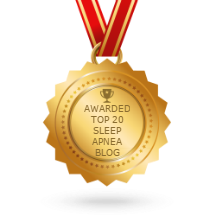Category Archives: Blogs

Can you use sleep as part of a weight-loss plan?
Getting enough sleep is essential to successful weight loss. Sleep is often overlooked by dieters, but a wealth of scientific research supports the theory that people who get little sleep are at increased risk of being overweight or obese. As a knock-on effect, poor sleep can lead people to be less active and snack more, often reaching for sugary or fatty foods as a pick-me-up. Here are a few tips from the doctor and nutritionist Laurence Plumey to improve the chances of successful weight loss.

Do You Sleep Well On Your First Night In A New Place?
When you check into a hotel room or stay with a friend, is your first night of sleep disturbed? Do you toss and turn, mind strangely alert, unable to shut down in the usual way? If so, you’re in good company.

The State Between Consciousness And Sleep
There is a brief time, between waking and sleep, when reality begins to warp. Rigid conscious thought starts to dissolve into the gently lapping waves of early stage dreaming and the world becomes a little more hallucinatory, your thoughts a little more untethered. Known as the hypnagogic state, it has received only erratic attention from researchers over the years, but a recent series of studies have renewed interest in this twilight period, with the hope it can reveal something fundamental about consciousness itself.
Traditionally, the hypnagogic state has been studied as part of the sleep disorder narcolepsy, where the brain’s inability to separate waking life and dreaming can result in terrifying hallucinations. But it’s also part of the normal transition into sleep, beginning when our mind is first affected by drowsiness and ending when we finally lose consciousness. It is brief and often slips by unnoticed, but consistent careful attention to your inner experience after you bed down can reveal an unfolding mindscape of curious sounds, abstract scenery, and tumbling thoughts.
This meandering cognitive state results from what Cambridge University researcher Valdas Noreika calls a “natural fragmentation of consciousness” and the idea that this can be tracked over the early minutes of sleep entry is the basis of recent hypnagogia research.
To read the rest of this sleep related article, click here:
http://www.theatlantic.com/science/archive/2016/04/deciphering-hypnagogia/478941/
You can buy CPAP Machines, tubing and all of your CPAP supplies at CPAP America, 707 Mantua Pike, West Deptford, NJ 08096. Feel free to contact us at 1-800-569-0167.
You can also reach us via email here.
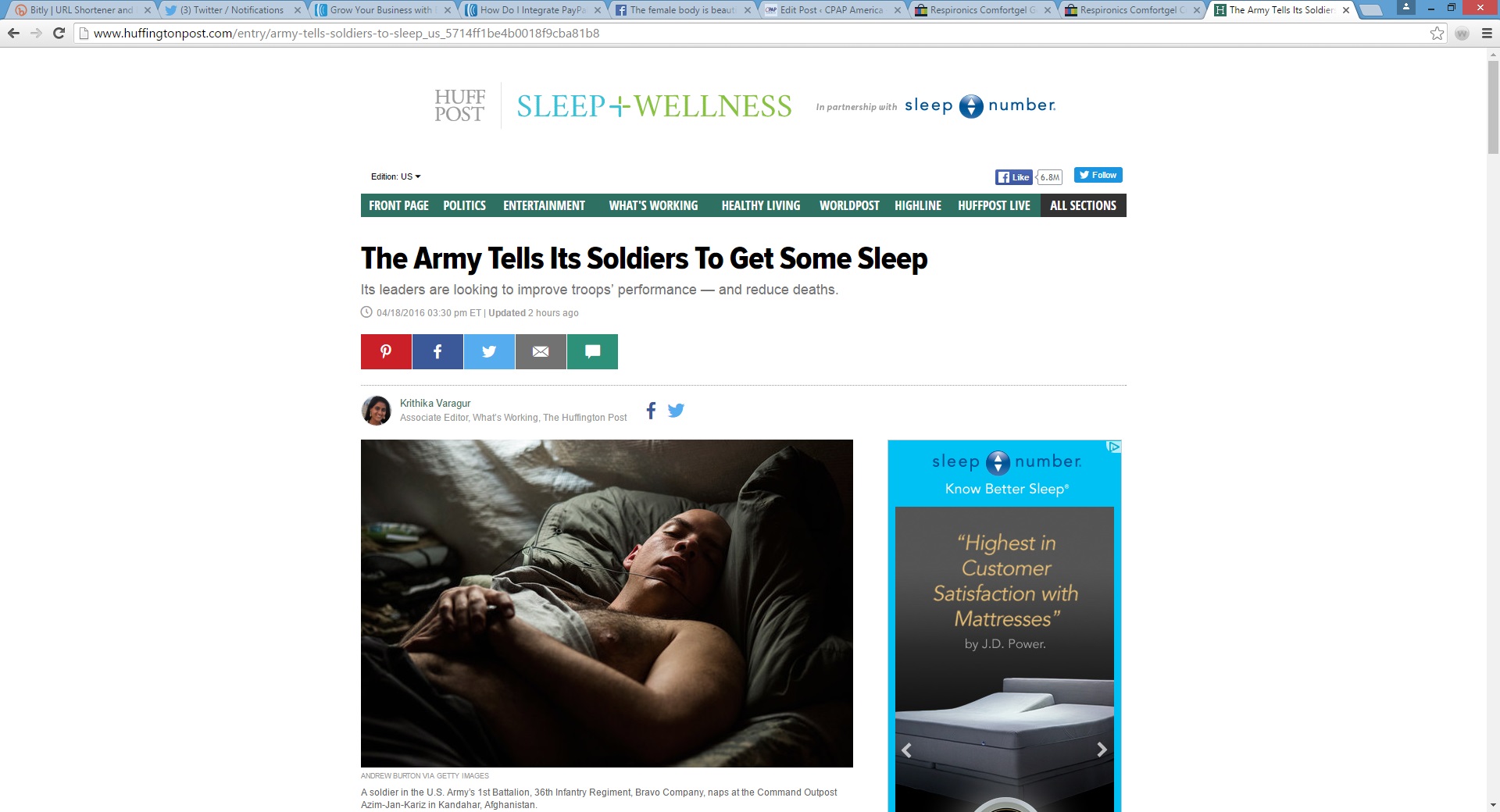
Army Looks To Improve The Sleep Of Their Soldiers
“In the Army, we do more before 9 a.m. than most people do all day” is a standard bit of military bravado. It’s as much about the discipline instilled in soldiers as it is about the fact that their strenuous training takes place under less-than-ideal health conditions — like waking up before dawn to exercise, which can create a cycle of sleep deprivation.
That’s partly why 10 percent of active duty soldiers have a diagnosed sleep disorder, and almost half have a “clinically significant” sleep disorder, according to a report the Army released last year. And fatigue was a contributing factor in 628 Army accidents and 32 soldier deaths between 2011 and 2014.
Now, the Army is trying to change its sleep culture with a wellness campaign called the Performance Triad, which is based on three pillars: nutrition, exercise and sleep.

Sleep Problems Could Foreshadow Pain Problems
Sleep Problems = Pain Problems?
For at least some groups of “emerging adults,” sleep problems are a predictor of chronic pain and worsening pain severity over time, a study suggests. The study is published PAIN, the official publication of the International Association for the Study of Pain (IASP). The journal is published by Wolters Kluwer.
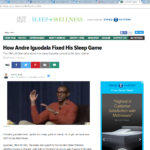
Warriors’ Andre Iguodala Stresses Sleep Importance
Warriors play hard and sleep well
If Andre Iguodala, NBA All-Star, Olympian and guard for the Golden State Warriors, hadn’t gotten his sleep game in check, he might not have won MVP in the NBA Finals.
Iguodala admitted during a Monday night talk at Stanford University with Arianna Huffington, co-founder and editor-in-chief of The Huffington Post, that he often didn’t get to bed until 4 a.m. in college, and really just took “long naps” rather than getting a full-night’s rest.
“There was a direct correlation between sleeping a certain number of hours and performing well on the basketball court,” Iguodala said.
Some of that poor sleep behavior continued when Iguodala landed in the NBA. But when he arrived at the Warriors in 2013, the team’s health director connected him with a sleep therapist. Iguodala made some changes: He removed his TV and phone from his bedroom, started doing breathing exercises and stretches before going to bed, and would read before attempting to go to sleep.

Should you change your sleeping position?
Sleeping Positions: Sweet Dreaming or Total Nightmare?
When you get in bed and cozy into your covers at night, you probably don’t put much thought into whether you’re on your side, back, or stomach. But if you snore like a bear every time your head hits the pillow or you wake up feeling stiff as a board, it might be time to switch things up at bedtime.
Here’s the scoop on the benefits and drawbacks of the most common sleeping positions.

This Company Actually Pays Employees to Sleep More
Last week, Aetna CEO Mark Bertolini revealed that one of his company’s many wellness programs is a system that incentivizes employees to sleep more. “If they can prove that they get 20 nights of sleep for seven hours or more in a row, we will give them $25 a night, up to $500 a year,” Bertolini said on CNBC’s Squawk Box, in a segment with fellow shuteye champion Arianna Huffington, who has just released a book called The Sleep Revolution. He said Aetna employees have “all sorts of different ways of proving it,” including wearing Fitbits to track their sleep patterns.
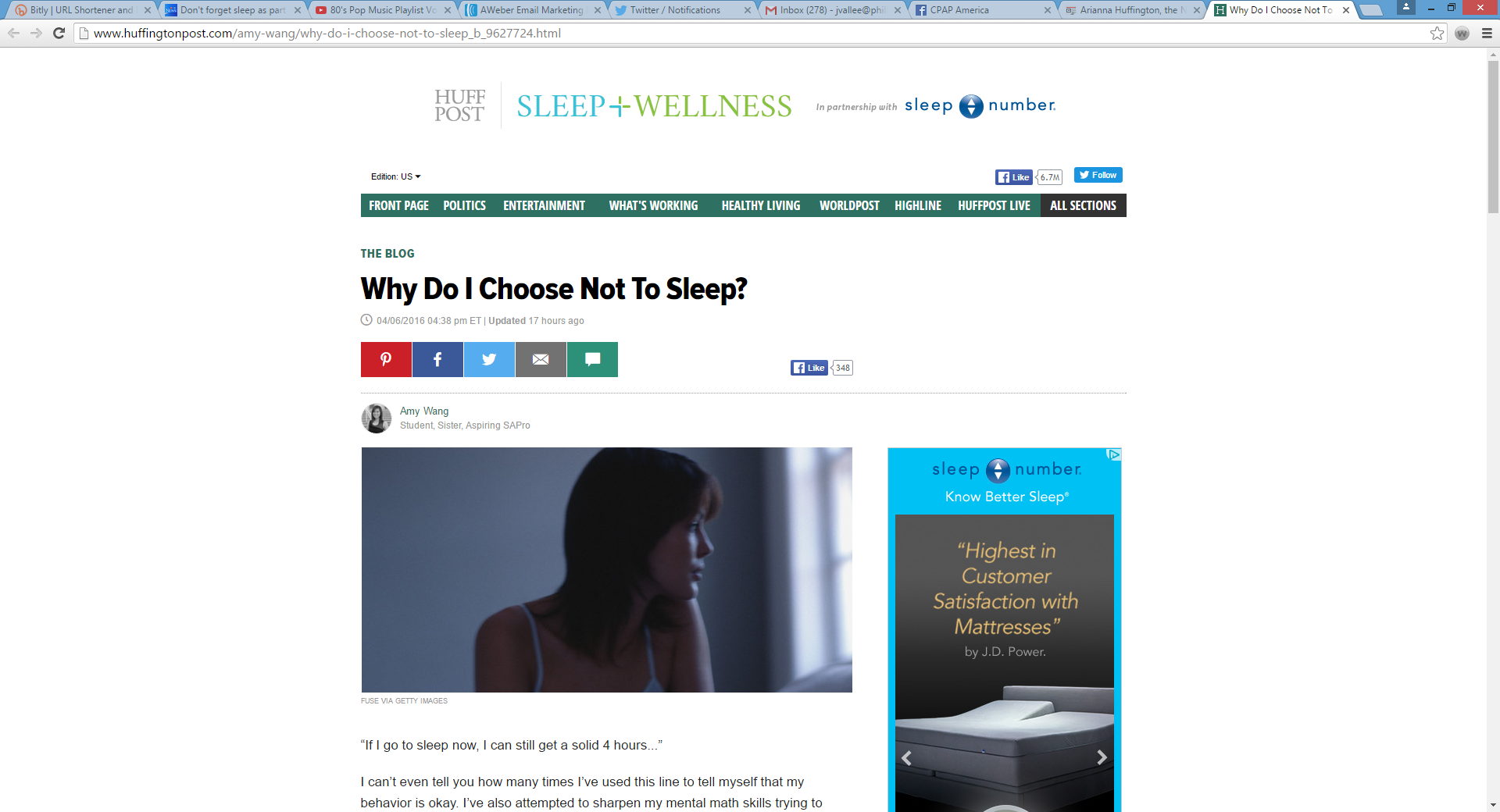
Why Don’t We Make Sleep A Priority?
“If I go to sleep now, I can still get a solid 4 hours…”
I can’t even tell you how many times I’ve used this line to tell myself that my behavior is okay. I’ve also attempted to sharpen my mental math skills trying to figure out the latest possible time I can go to sleep to get four hours of rest. It’s a minimum I’ve determined myself, a number of how many hours I believe I personally need to function. But I can never seem to get it right because I make these decisions when I’m already sleep-deprived, which leads me to poor choices and staying up until I only have four hours left.
So what happens? I wake up feeling sluggish.
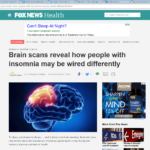
Insomnia sufferers may have abnormal brain activity
To sleep, perchance to dream … and to keep your brain working: Scientists have long known about the importance of getting a good night’s sleep to improve memory, learning and mental health. But the underlying cause of primary insomnia — a chronic inability to sleep soundly that’s not associated with the use of stimulants, or medical disorders such as depression — has eluded researchers.
Now, a small study comparing healthy participants to patients who have primary insomnia has found that the people with insomnia have weakened neural connections to and from the thalamus, the region of the brain that regulates consciousness, sleep and alertness.

